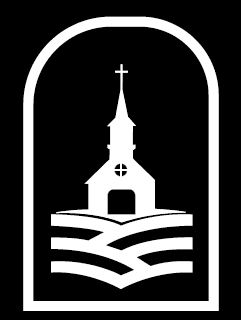Here we have gathered 13 of the best Bible Colleges in America. May you find a great Bible school for yourself or your wards in this unique list of renowned institutions.
Bible College in North Carolina
According to our findings from experts, the best Christian College in North Carolina is Gardner-Webb University because of its academic quality, faculty expertise, campus culture, and religious affiliation. However, here are lists of the top Thirteen (13) Christian Colleges in North Carolina:
1. Montreat College
Montreat College is a private Christian liberal arts college located in Montreat, North Carolina. Montreat College is a small, beautiful college located in Black Mountain, NC 28757. It was founded in 1916 and is affiliated with the Presbyterian Church (USA). The college offers undergraduate and graduate programs in various fields.
Montreat College is known for its commitment to integrating faith and learning, and it emphasizes a Christian worldview in its academic programs. The campus is situated in a picturesque area near the Blue Ridge Mountains, providing a scenic and peaceful environment for students.
Montreat College’s academic programs include traditional undergraduate, adult undergraduate, graduate academic programs, and online learning. It is affiliated with the Christian-Interdenominational religion.
Montreat College offers courses and programs leading to officially recognized higher education degrees such as pre-bachelor’s degrees (i.e. certificates, diplomas, associate or foundation), bachelor’s degrees, and master’s degrees in several areas of study.
The best thing about Montreat is the one-on-one interest you get from the professors.
Montreat College tuition is nearly 25% lower than the national average for private colleges and universities, and 99% of our students receive financial aid.
2. North Carolina Wesleyan University
North Carolina Wesleyan College (NC Wesleyan) is a private liberal arts college located in Rocky Mount, North Carolina, USA. It is situated in Rocky Mount, a city in Edgecombe and Nash counties in the coastal plain region of North Carolina.
NC Wesleyan was founded in 1956 and is affiliated with the United Methodist Church. The college’s mission is to provide students with a broad liberal arts education while also emphasizing professional and pre-professional programs.
The college offers a range of undergraduate programs in various fields, including arts and sciences, business, education, and pre-professional studies. Common degrees include Bachelor of Arts, Bachelor of Science, and Bachelor of Fine Arts.
The campus features academic buildings, student residence halls, athletic facilities, and other amenities. Some colleges offer specialized facilities for certain programs or activities, so it’s recommended to check the official website for the most accurate information.
North Carolina Wesleyan University is a private institution that was founded in 1956. It has a total undergraduate enrollment of 1,249 (fall 2022), and the campus size is 200 acres. It utilizes a semester-based academic calendar.
| Tuition | $34,936 | $17,468 per semester |
|---|---|---|
| Room (Double) | $5,698 | $2,849 per semester |
| Meal Plan | $7,096 | $3,548 per semester |
| TOTAL: | $47,730 | $23,865 per semester* |
For further information visit NC
3. Methodist University
Methodist University is a private university that is affiliated with the North Carolina Annual Conference of the United Methodist Church and is located in Fayetteville, North Carolina, USA. It is situated in Fayetteville, North Carolina, in Cumberland County. The address for the university is: Methodist University 5400 Ramsey Street Fayetteville, NC 28311. Methodist University was founded in 1956 by the North Carolina Conference of the United Methodist Church. It started as a two-year institution and later became a four-year college. In 2006, it achieved university status.
4. Barton College
Barton College was incorporated as Atlantic Christian College on May 1, 1902, by the North Carolina Christian Missionary Convention, following the purchase of the Kinsey Seminary in 1901. The college remains affiliated with the Christian Church (Disciples of Christ). On September 6, 1990, the school changed its name to Barton College in honor of Barton Warren Stone, a founder of the Christian Church (Disciples of Christ) who was active in eastern North Carolina. Through its Division of Lifelong Learning, Barton College opened eastern North Carolina’s Barton Weekend College in the fall of 1990.
Barton College is composed of seven schools and two departments: School of Allied Health and Sport Studies, Department of Art and Design, School of Business, Department of Communication and Performing Arts, School of Education, School of Humanities, School of Nursing, School of Sciences, and School of Social Work.
Barton athletic teams are nicknamed as the Bulldogs. The college is a member of the Division II level of the National Collegiate Athletic Association (NCAA), primarily competing in Conference Carolinas since the 1930–31 academic year. Its mascot is the Bulldog and their colors are royal blue and white.
Barton competes in 22 intercollegiate varsity sports: Men’s sports include baseball, basketball, cross country, football, golf, lacrosse, soccer, swimming, tennis, track & field, and volleyball; while women’s sports include basketball, cheerleading, cross country, golf, lacrosse, soccer, softball, swimming, tennis, track & field and volleyball.
Barton College competes in NCAA Division II athletics. The Bulldogs participate in various sports, and the college has athletic facilities to support its sports programs.
It is a small institution with an enrollment of 1,011 undergraduate students. The Barton acceptance rate is 99%. Popular majors include Nursing, Business, Social Work, and Youth Services.
| Full-Time Students Living on Campus (tuition per year) | |
| Tuition | $35,600 |
| Housing* and Food | $11,500 |
| Total | $47,100 |
For further information visit Barton
5. Mid-Atlantic Christian University
Mid-Atlantic Christian University (MACU) is a private Christian university located in Elizabeth City, North Carolina, USA. Mid-Atlantic Christian University is situated in Elizabeth City, a city in Pasquotank County in northeastern North Carolina.
The university was founded in 1948 as Roanoke Bible College. It has a Christian heritage and is associated with the Christian Churches and Churches of Christ. The institution’s name was changed to Mid-Atlantic Christian University in 2009.
Mid-Atlantic Christian University offers undergraduate and graduate programs with a focus on Christian values and education. Common degrees include Bachelor of Theology, Bachelor of Arts, and Bachelor of Science degrees. All students major in biblical studies, and can double major in Applied Linguistics, Cross-Cultural Ministry, General Ministry, Leadership & Administration, Preaching, or Youth and Family Ministry.
The university is known for its commitment to integrating faith and learning. The campus includes academic buildings, a chapel, residence halls, and other facilities.
Mid-Atlantic Christian (MACU) athletic teams are known as the Mustangs. The university is a member of the United States Collegiate Athletic Association (USCAA; which they joined in December 2012) primarily competing as a founding member of the Eastern Metro Athletic Conference (EMAC) since the 2018–19 academic year.MACU currently fields six varsity sports: Men’s sports include basketball, golf, and soccer; while women’s sports include basketball, soccer and volleyball.MACU also has intramural sports that vary by semester. These have included flag football, basketball, volleyball, kickball, wiffle ball, and many more. There are also tournaments played among the students in the lobbies utilizing the pool table, ping pong table and foosball table.
| On-Campus | Off-Campus | |
|---|---|---|
| Total Costs | $33,440 | $33,196 |
| Tuition & Fees | $17,040 | |
| Books & Supplies | $1,200 | |
| Room & Board | $10,000 | $5,628 |
| Other Expenses | $5,200 | $9,328 |
| Average Financial Aid | $10,329 | |
| Total Costs After Receiving Aid | $23,111 | $22,867 |
For further information visit MACU
6. Carolina College of Biblical Studies
Carolina College of Biblical Studies (CCBS) is a private Christian college located in Fayetteville, North Carolina. It is a nondenominational Bible college in Fayetteville, North Carolina. It offers associate and bachelor’s degree programs in Biblical Studies. Several non-degree certificates are also available. Carolina College of Biblical Studies is situated in Fayetteville, a city in Cumberland County in the southeastern part of North Carolina.
Founded in 1973, CCBS is a non-denominational Christian institution that emphasizes biblical studies and theological education. It provides programs for individuals seeking a solid foundation in the Christian faith and biblical principles. CCBS offers undergraduate and graduate programs with a focus on biblical studies, theology, and ministry. Common degrees include Associate of Arts in Biblical Studies, Bachelor of Arts in Biblical Studies, and Master of Arts in Christian Leadership.
The college primarily serves adult learners. Courses are offered mornings, afternoons, and evenings as well as online. The student-to-faculty ratio is 15:1. Students are racially diverse, with nearly equal numbers of men and women. They come from more than 20 church denominations and independent churches.
Carolina College of Biblical Studies had a total enrollment of 324 students in 2021. The full-time enrollment at Carolina College of Biblical Studies is 126 students and the part-time enrollment is 198. This means that 38.9% of students enrolled at Carolina College of Biblical Studies are enrolled full-time.
TUITION
- Undergraduate – $255 per credit hour
- Military Undergraduate – $235 per credit hour (available for active duty/former military and their dependents)
- Graduate – $295 per credit hour
- Military Graduate – $265 per credit hour (available for active duty/former military and their dependents)
- Certificate – $250 per course
- Audit – $125 per course
FEES
- Application Fee – $40
- Early Registration Fee – $60 per semester
- Registration Fee – $85 per semester
- Technology Fee – $90 per semester
- Logos Bible Software – $300 (one-time fee)
- Graduation Fees – $135
For further information visit CCBS
7. Charlotte Christian College and Theological Seminary
Charlotte Christian College and Theological Seminary (CCCTS) is a private Christian institution located in Charlotte, North Carolina. Charlotte Christian College and Theological Seminary is located in Charlotte, the largest city in North Carolina. It is accredited by the Transnational Association of Christian Colleges and Schools.
CCCTS was established as Carolina Bible College in 1996. It was established in 1996 by Eddie G. Grigg, a pastor, educator, and theologian. The institution was approved as a degree-granting institution in 1997, granted candidate for accreditation status in 2003, and was fully accredited in 2008. It is a non-denominational Christian college and seminary committed to providing theological education and preparing students for various Christian ministries.
CCCTS offers undergraduate and graduate programs with a focus on biblical studies, theology, and ministry. Common degrees include Associate of Arts in Christian Ministry, Bachelor of Arts in Christian Ministry, Master of Arts in Christian Leadership, and more.
The total enrollment at Charlotte Christian College and Theological Seminary is 272 students.
Full-time students (12-18 credit hours):
- Tuition is $5,485 each semester (Block Cost)
- In addition, a flat fee of $475 for student services is required.
Part-time students (less than 12 credit hours):
- Tuition is charged at a rate of $1545 per course plus the student services fee.
For further information visit CCCTS
8. Carolina Christian College
Carolina Christian College (CCC) is a special-purpose, undergraduate institution. CCC is chartered by the State of North Carolina as a post-secondary nonprofit institution by the United States Government. It educates persons for Christian ministries through a program of Biblical and theological studies, general education in the arts and sciences, and professional studies.
It is a Christian Bible college located in the Sandhills of North Carolina. Our mission is to disciple Christ-followers, through biblical higher education, for a lifetime of effective servant leadership. Our students are 48% female and 52% male from a variety of evangelical denominations.
The student body is comprised of 56% African American, 28% Caucasian, 8% Hispanic, 3% American Indian, 1% Asian, and 4% unlisted. Emphasis is placed upon cultural awareness and urban ministry that will prepare workers to establish and serve the church in the United States and around the world.
Carolina Christian College is accredited by the Association for Biblical Higher Education Commission on Accreditation to grant certificates and degrees at the Associate, Baccalaureate, Master’s, and Doctoral levels.
CCC credits are readily accepted in transfer to all colleges of the ABHE as well as to other Biblical and Secular colleges. Many CCC students and graduates have also transferred to secular colleges and universities without loss of credit.
It is the mission of Carolina Christian College to provide Biblically-based academic programs that prepare men and women of all races for ministry and community service with a focus on the African-American community.
It is a small institution with an enrollment of 158 students.
Student Tuition Cost
| Audit/Certificate per class | $50.00 |
| $100.00 | |
| Undergraduate Program Tuition | |
| (Books included in tuition bundle) | $0 |
| Full-Time Tuition (per semester) | $3800 |
| Student Fees (per semester) | $665.00 |
| Graduate Program Tuition | |
| Books (average per semester) | $400.00 |
| Full-Time Tuition (per semester) | $5000.00 |
| Student Fees (per semester) | $665.00 |
For further information visit CCC
9. Gardner-Webb University
Gardner-Webb University is a private Christian university located in Boiling Springs, North Carolina, USA. It is situated in Boiling Springs, a town in Cleveland County, North Carolina. The university’s address is: Gardner-Webb University 110 S. Main St. Boiling Springs, NC 28017.
Gardner-Webb University was founded in 1905 as Boiling Springs High School and Junior College. It evolved into a four-year college in 1928 and later gained university status in 1993. The university has Baptist affiliations and is associated with the Baptist State Convention of North Carolina.
Gardner-Webb University offers a wide range of undergraduate and graduate programs across various disciplines. The university has multiple schools, including the School of Business, School of Education, School of Nursing, and the College of Arts and Sciences. Popular degrees include Bachelor of Arts, Bachelor of Science, Master of Business Administration (MBA), and more.
The campus includes academic buildings, residence halls, athletic facilities, and other amenities. Gardner-Webb may have specialized facilities for certain programs, such as laboratories, libraries, and performance spaces.
Gardner-Webb University is accredited by the Southern Association of Colleges and Schools Commission on Colleges (SACSCOC), which ensures that the university meets specific academic standards.
Gardner-Webb University offers 21 varsity sports at the NCAA Division I level, including; football, basketball, baseball, soccer, wrestling, swimming, track and field, cross country, softball, tennis, volleyball, lacrosse, cheerleading, and golf. It competes in NCAA Division I athletics. The Runnin’ Bulldogs, as they are known, participate in various sports, and the university has athletic facilities to support its sports programs.
Fee Description Cost Per Semester
Tuition (Full-Time: 10-18 Hours)$16,235
Room: Traditional$2,705
Private Room (Additional)$880
Suite Style$2,705University Commons$4,310
Board Plans: Platinum Bulldog PlanUnlimited + $600
Flex$2,780Gold Bulldog PlanUnlimited + $500
Flex$2,640
Bulldog 14 Plan14 Meals/Week + $500
Flex$2,520
Part-Time / Overload Rate(Less Than 10 Semester Hours orMore Than 18 Semester Hours)$496 Per Credit Hour
Residence Hall Security Deposit$100
Residential Amenities Fee$195
Student Activities Fee$170
Student Health Clinic Fee$135
Bulldog Bundle Fee$360
Digital Learning Fee$75
For further information, visit Gardner
10. Heritage Bible College
Heritage Bible College of Dunn, North Carolina, is a coeducational Bible college founded to serve the Pentecostal Free Will Baptist (PFWB) denomination as well as other Christian denominations. Heritage was established to provide systematic and comprehensive training in the Word of God from a Pentecostal perspective to enable students to fulfill their specific call to the ministry.
Heritage Bible College was founded by Dr. Herbert Carter and opened for classes in the fall of 1971, with approximately 60 students in attendance. The strength of Heritage Bible College is its commitment to educational integrity, biblical truth, and preparation of graduates to be effective workers for the kingdom of God.
The Mission of Heritage Bible College is to develop servant leaders with a Christ-centered worldview and a distinct Christian character, equipping them for committed service by providing excellent biblical, academic, and practical training.
It is a small institution with an enrollment of 17 undergraduate students. The Heritage Bible acceptance rate is 100%.
Tuition: $118.75 per credit hour (Students usually take between 16-18 credit hours per semester.)
Dorm Rent: $700 per semester
Meal Plan: $750 per semester
Student Participation Fee: $50 per semester
Registration Fee: $25 per semester
Library Fee: $50 per semester
Technology Fee: $150 per semester
Room Deposit: $100 per semester (refundable upon inspection)
Textbooks: Approximately $200 per semester (variable)
Missions Trip (annually in February): Approximately $1000 (there are fundraising opportunities)
For further information, visit HBC
11. Shepherds Theological Seminary
Shepherds Theological Seminary is a private evangelical seminary located in Cary, North Carolina, USA. It is associated with Shepherds Community Church and is dedicated to providing theological education with a focus on biblical fidelity, spiritual maturity, and ministry effectiveness.
Shepherds Theological Seminary is located in Cary, a town in Wake County, North Carolina. The seminary’s address is: Shepherds Theological Seminary 6051 Tryon Road Cary, NC 27518
Shepherds Theological Seminary was founded in 2004 as an outgrowth of Shepherds Community Church. The seminary aims to equip men and women for ministry by providing biblical and theological education.
The seminary offers various graduate-level programs, including Master of Divinity (M.Div.), Master of Arts (M.A.), and Doctor of Ministry (D.Min.). The programs cover areas such as biblical studies, theology, pastoral ministry, counseling, and more.
Shepherds Theological Seminary is known for its commitment to a conservative evangelical theology. The faculty consists of experienced scholars and practitioners dedicated to theological education and ministry training.
The seminary campus includes academic buildings, a library, and facilities for student activities and events.
The enrollment at Shepherds Theological Seminary is 284 students.
Category | Tuition per Credit Hour |
| Full-time Student (9+ hours) | $410 |
| Part-time Student (<9 hours) | $435 |
| Winter & Summer Courses | $370 |
| DMin Student | $545 |
| Audit Student | $60 |
Fees | |
| Application Fee (one-time; non–refundable) | $60 |
| Late Application Fee (one-time; non–refundable; total application fee becomes $105) | $45 |
| New Student Orientation Fee (one-time) | $35 |
| Graduation Fee | $310 |
| LOGOS Bible Software Fee (one-time) | $325 |
| Student Services Fee (due every fall/spring semester) | $330 |
| Add/Drop Fee (due if making course change after registration deadline) | $30 |
| Late Tuition Payment Fee (due each month after tuition payment deadline) | $30 |
Additional One-Year Cohort Fees | |
| Program Fee* | $720 |
| Teaching Site Fee (per course)* | $315 |
| Bible Institute Fee (for The WEST Institute)* | $105 |
| Route 66 Fee (for other one-year sites)* | $105 |
| Outdoor Equipment Rental Fee | $60 |
Additional DMin Fees | |
| Doctoral Library Development Fee Per Semester | $300 |
| Doctoral Dissertation/Research Project Continuation Fee | $600 |
For further information, visit shepherds
12. Clarksville School of Theology
Clarksville School of Theology is a seminary in Clayton, North Carolina. It was founded in Clarksville, Tennessee and was shut down in 1982 by legal action after it was determined that its curriculum did not meet state standards for granting an academic degree. In the case, Tennessee ex rel. McLemore v. Clarksville School of Theology, the Tennessee Supreme Court upheld broad state regulation of a theological school that trained only ministers, offered no secular courses, and granted only theological degrees.
In November 1990, Roy Stewart retired from Clarksville School of Theology and Grover Twiddy became the second president of the school, consequently changing its name to Clarksville Theological Seminary and moving the college to Kinston, North Carolina. As of January 15, 1996, Charles Ray Ennis became the third president and subsequently moved the school to its present location in Clayton, North Carolina.
The high academic standards and Christian faith and service at Clarksville Theological Seminary requires a review and evaluation of each applicant.
To be considered for admission at Clarksville Theological Seminary, the enrollment packet must be completed in its entirety and should include a completed application form, letters of recommendation, a personal testimony of the student’s salvation, official academic transcripts of all schools attended, and payment of the $50.00 application fee.
No person shall be excluded from participation in, be denied the benefits of, or be otherwise subjected to discrimination under any program or activity of the school because of race, color, sex, or national origin. However, only persons who have a testimony of biblical salvation and have a sincere desire to serve Christ are eligible for admission.
For further information, visit Clarksville
13. Reformed Theological Seminary
Reformed Theological Seminary (RTS) is a conservative, evangelical seminary with multiple campuses in the United States. As of my last knowledge update in January 2022, here is detailed information about Reformed Theological Seminary:
RTS was founded in 1966 in Jackson, Mississippi. It has historical ties to conservative Reformed and Presbyterian denominations.
RTS has multiple campuses across the United States, including locations in Florida, Texas, Georgia, Mississippi, Tennessee, and Washington, D.C.
RTS offers a range of graduate-level theological degrees, including Master of Divinity (M.Div.), Master of Arts (M.A.), and Doctor of Ministry (D.Min.). Students can specialize in various areas, including biblical studies, theology, counseling, and more.
RTS boasts a faculty of scholars and theologians who are committed to the Reformed theological tradition. Faculty members often contribute to academic research, publish books, and engage in theological scholarship.
RTS is known for its commitment to Reformed theology, emphasizing the authority of Scripture, the sovereignty of God, and the doctrines of grace.
RTS offers online courses, allowing students to pursue theological education remotely. This is especially beneficial for those who cannot attend a physical campus.
RTS is accredited by the Association of Theological Schools (ATS) and the Southern Association of Colleges and Schools Commission on Colleges (SACSCOC).
RTS provides opportunities for continuing education through seminars, workshops, and conferences.
While RTS has historical ties to Reformed and Presbyterian denominations, it is not exclusively tied to any one denomination, allowing students from various backgrounds to attend.
Enrollment/Faculty Information
Number of Students: 1145
Number of Full-Time Faculty: 33
M.Div and M.A. Fees
D.Min. Fees
For further information, visit reformed
Conclusion
Bible colleges stand as a testament to the power of faith-based education and its accessibility. These institutions provide grounded training in theological studies and ministry training in North Carolina.
As we’ve investigated, the advantages of going to such schools reach out past the individual, encouraging a local area of educated, talented, and profoundly enhanced pioneers prepared to serve God and their communities.










